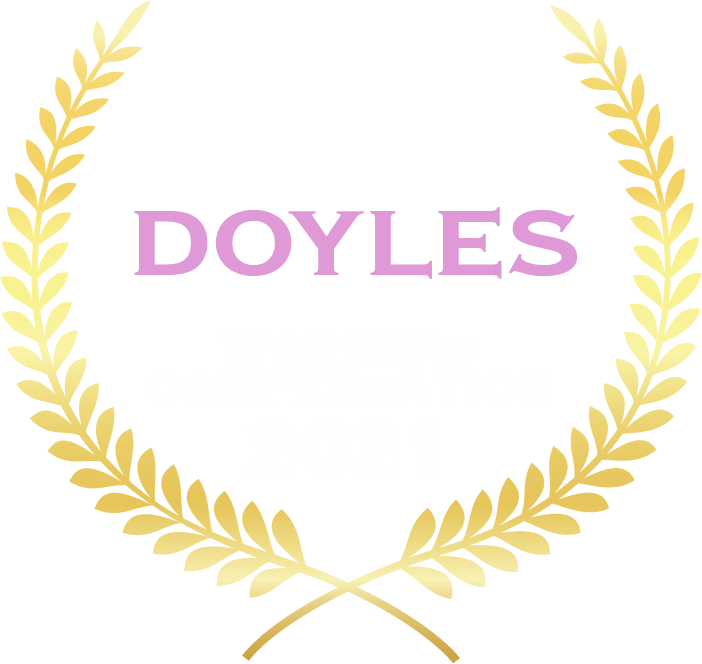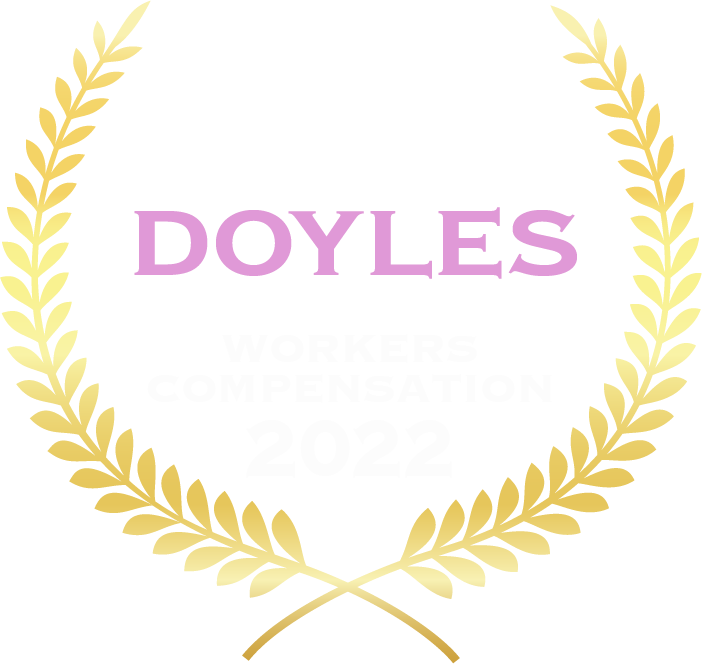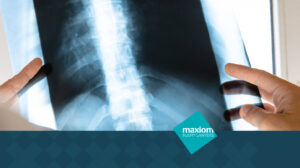What is a personal injury claim?
A personal injury claim is the start of a formal process to claim basic legal entitlements (I.e. WorkCover, TAC, Comcare) and/or make a legal case against someone, a company, or a third party to receive ‘damages’ compensation where you have been injured through negligence or fault. There are four types of personal injury claims:
- Workplace Injury (WorkCover, Work Injury & Asbestos disease) Claim
- Road accident Claim (TAC)
- Medical Negligence (Malpractice) Claim
- Public Liability Claim (Slip & Trip)
The Personal Injury Claims Process
What is the personal injury claim timeline?
Making a personal injury claim generally consists of 8 stages/steps before the matter is considered resolved:
- Injury/Accident occurs
- Claimant reports the accident and injury
- Claimant seeks medical attention and help
- Claimant seeks legal advice from a personal injury lawyer to understand their rights and entitlements
- Claimant may need to attend a serious or significant injury medical assessment for an independent evaluation of their injuries
- Parties seek to settle the matter out of court through mediation which is called the pre-litigation phase
- If no resolution is achieved at mediation, further legal proceedings commence
- Hearing date is set
- The legal case is heard before a court and jury to determine an appropriate settlement.
What is the personal injury claim timeline for an injury under the WorkCover /TAC compensation schemes?
Making a personal injury claim for a workplace injury or an accident on the road generally consists of 10 stages/steps before the matter is considered resolved. These are as follows:
- Injury/Accident occurs
- Claimant reports the accident and injury to their employer (work injury) / police (car accident)
- Claimant seeks medical attention and help
- Claimant lodges a claim with WorkCover (work-related injuries) or TAC (traffic accidents)
- Claimant seeks legal advice and representation from a personal injury lawyer
- Claimant may need to attend a serious or significant injury medical assessment for an independent evaluation of their injuries
- Parties seek to settle the matter out of court through mediation, this is called the pre-litigation phase
- If no resolution is achieved at mediation, further legal proceedings commence
- Hearing date is set
- The legal case is heard before a court and jury to determine an appropriate settlement.
How do I report a personal injury accident?
All personal injuries must be reported to the relevant organisations or authorities within a set timeframe. Examples of how to make your report include:
For a workplace injury, you must report your accident to your employer before lodging your workplace personal injury claim through WorkCover.
For an injury on the road, you must report your accident to the public transport operator before lodging your TAC claim.
If you are a road traffic accident victim, you should always notify the police, who will process your accident and give you a Traffic Incident Number (TIN). Remember to take any details of policers in attendance, including officer names, badge numbers and the station they are based out of.
How can a medical certificate help my personal injury claim?
A medical certificate can help your personal injury claim by:
- Helping assist any parties to make a decision and come to a satisfactory outcome for your claim.
- Helping all involved parties to determine the best long-term treatment or support required for your injury; and what level of compensation will ensure you can continue that treatment/support.
- Helping determine your capability for work and independence, the predicted treatment and/ or your capacity for rehabilitation.
What are the types of medical proof and evidence for a personal injury claim?
The type of medical proof and evidence for a personal injury claim are:
- Medical certificates
- Medical reports
- A certificate of capacity
- Witness statements
How can I obtain a medical certificate, medical proof or certificate of capacity for my personal injury claim?
You can obtain medical evidence for your personal injury claim by seeking medical attention immediately after the accident. We recommend that you seek medical advice as soon as possible after your injury to ensure that you have detailed documentation that supports your claim.
The claims manager with your insurer will ask that you provide a medical report from your treating practitioner. You may also be required to be assessed in an independent medical examination (IME).
How can a doctor or medical professional help with my personal injury claim?
A doctor or medical professional can help provide you with supporting documents and medical evidence to prove your personal injury claim further.
For this reason, you must seek medical help, advice, and consultation as soon as possible following your injury to obtain the correct medical evidence (such as a medical certificate or medical diagnostic report) to support your personal injury claim. You will need to provide this to your chosen legal representation as evidence.
Who can provide a medical certificate for my personal injury claim?
You can obtain a medical certificate or medical diagnostic report for your personal injury claim from a legally qualified medical practitioner (LQMP), which includes the following:
- General Practitioner
- Surgeon
- Psychologist
- Dentist
- Chiropractor
- Physiotherapist
- Massage Therapist
- Osteopath
- Optometrist
The medical certificate, prognosis, and/or diagnosis provided to help your personal injury must be obtained from the correct medical professional or doctor for your injury.
For example:
A social worker, counsellor or psychologist would be the correct medical professional for psychological trauma.
For dental accidents/injuries, a dentist’s medical report would be required.
What must a claims manager find to verify my work-related injury?
In order for the claims manager with your insurer to confirm that you have an eligible claim to personal injury benefits for your work-related injury or road accident, your claims manager must find the following:
- Evidence of the medical condition
- Evidence that the medical condition relates to work
What is the Victorian WorkCover Scheme?
The Victorian WorkCover scheme is a statutory, no-fault, compulsory insurance scheme. To be covered by the WorkCover scheme, employers must register for WorkCover Insurance to insure themselves against compensation claims for work-related injuries and diseases.
What criteria must be met to comply with the WorkCover Scheme conditions?
According to the Victorian WorkCover Authority, the following criteria must be met to comply with WorkCover conditions and receive compensation:
- The person must be a worker within the meaning of the legislation.
- The worker must suffer a work-related injury; in some cases, their employment must be a significant contributing factor to that injury.
What are the significant contributing factors?
According to Work Safe’s claim manual, significant contributing factors mean the employment must have contributed to the work-related injury in a significant, non-trivial way. The primary considerations taken into account are:
- The duration of the worker’s current employment
- The nature of the work performed
- The particular tasks of the employment
- The probable development of the injury occurring if that employment had not taken place
- The existence of any hereditary risks
- The lifestyle of the worker
- The activities of the worker outside the workplace
How is a personal injury claim assessed?
When you submit a personal injury claim, your claims manager and personal injury lawyer will assess your application, along with any medical evidence and other important information.
In reviewing this evidence, the parties will consider the validity of the application under the governing legislation. You may be asked to attend an assessment with an independent medical examiner (IME) and /or provide further information or details during the process. This supporting information may be necessary to strengthen your personal injury claim and determine if you are eligible to seek additional compensation for negligence by a third party.
After your claims manager has determined whether your condition, injury, or ailment is compliant and fulfils all condition requirements, they will assess the relationship the illness or injury has to the job, accident, or neglect of the third party and determine if it was indeed a direct result of negligence as claimed by the claimant.
The claims manager will determine if your injury:
- Has arisen due to negligence, working conditions, or as a result of circumstances inflicted by the employer.
- Was contributed to or significantly altered by the accident, job, or negligence caused by others.
For more information on contributing factors visit the VWA website or review section 2.1.6 of the Work Safe claims manual for specific defining factors, noting the full description requirements for:
- Sudden physiological change
- Diseases and pre-existing injuries
- Heart attack and stroke injuries
- Travelling for work injuries
- Trade or schools
- Injuries at work during sporting activities
Certificate of Capacity
What is a Certificate of Capacity?
A Certificate of Capacity, also known as a Work Capacity Certificate, is a certificate issued by a medical practitioner, usually your GP, but can also be issued by a surgeon or a psychiatrist, to determine the nature of the injury, illness, or medical condition, how that injury affects a person’s capacity for work and what limitations they have on performing work tasks.
What information is required on a Certificate of Capacity form?
The Certificate of Capacity is a form of medical evidence and is, therefore, required to include information such as:
Work Injury Claim:
- The worker’s details
- The diagnosis
- The capacity assessment, i.e., how the worker’s physical or mental health functions are affected by their injury/condition
- The certification duration and estimated timeframe to return to work
- The treatment plan
- The certifier declaration
- The worker declaration
- The signature of the certifier
- The signature of the worker
TAC Claim:
- The worker’s details
- The diagnosis
- The capacity assessment, i.e., how the worker’s physical or mental health functions are affected by their injury/condition
- The certification duration and estimated timeframe to return to work
- The treatment plan
- The certifier declaration
- The worker declaration
- The signature of the certifier
- The signature of the worker
Click this link for a copy of the Certificate of Capacity form.
How can a Certificate of Capacity help my personal injury claim?
A certificate of capacity can help your personal injury claim by:
- Providing proof of your injury
- Acting as a tool for an employee, employer, claimant, and legal and medical professionals to provide clear information on the injury, pain, or suffering a claimant underwent that may impact their ability to return to work at full capacity.
A Certificate of Capacity proves the extent of your injury for a personal injury claim regarding a work-related or road injury, primarily where your injuries have caused distress or harm or have limited your capacity to work in a job you are qualified for.
How can a Certificate of Capacity help employees?
A Certificate of Capacity can help an employee:
- Understand and express the nature of their injury/illness and help them explain what their injury is.
- Understand their limitations, their capacity to work, and ‘come to terms’ with tasks they may not be able to carry out that they regularly may have before.
- Communicate with their medical practitioner regarding services or help they may require.
How can a Certificate of Capacity help an employer?
For an employer, a certificate of capacity can help:
- Understand the gravity of their employee’s situation, pain, and limitations for work.
- Act as a communication tool between employee and employer to help determine a way forward now that the employee has limited capability for work.
- In understanding what they need to do and the changes they may need to make to support a safe return to work for their employee.
- Give the employer a timeline for the employee’s recovery, including an estimate of the duration of medical treatment required.
How do I apply for a Certificate of Capacity?
You can apply for a Certificate of Capacity by filling out the Certificate of Capacity form. If you require more information or assistance, visit the Transport Accident Commission site or the Work Injury Site.
Is WorkCover the same as Workers compensation?
Yes, WorkCover and Workers compensation are the same and refer to the same scheme. WorkCover is the old name for Victoria’s workers compensation scheme. WorkCover is a term still largely used today.
Refer to our Workers Compensation Payout Article Guide for more information and to get a better understanding on:
- How much workers compensation you may be entitled to, and how long you claim workers compensation.
- The workers compensation lump sum settlements available to Victorian workers and the types of lump sum payments
- How to make a workers compensation claim and how compensation settlements are determined.
Personal Injury Claims
How much can I get from a personal injury claim in Melbourne?
The level of personal injury compensation you may be eligible for is dependent on many factors, including:
- The type of injury you have
- Your injury extent
- Your health and age
- Your occupation before the accident
- Your capacity to work after the accident
- How the injury has impacted your life
Pain and suffering damages could range from $100,000 to $10,600,000, depending on the consequences of the injury to the individual.
In case of a severe injury where you cannot work for a lengthy period or indefinitely, you may be entitled to higher compensation depending on your age and the medical evidence regarding your capacity for work.
Contact us today to discuss what compensation amount you may be entitled to.
The Personal Injury Claims
How long do I have to submit my personal injury claim in Melbourne?
Personal injury claims have strict time limits that must be adhered to. However, there are circumstances where an injured Victorian can lodge a claim out of time. Speak with your personal injury lawyer about whether the facts of your case merit lodging a claim out of time.
Generally, you should lodge a personal injury claim as soon as possible after learning of your injury and start gathering evidence to support your claim. Workplace Personal Injury (Work Injury & Asbestos Disease) claims should generally be lodged within six months in Melbourne but can be extended up to 3 years in certain circumstances. You can submit a workplace injury claim with SIRA approval after three years in Melbourne if your injury has resulted in severe or permanent damage or death.
Road accident or TAC claims should generally be lodged in Melbourne within 28 days of the accident. You can submit a TAC injury claim with SIRA approval after three years in Melbourne if your injury results in severe or permanent damage or death.
Medical negligence (Malpractice claims) can be lodged in Melbourne within three years after the accident, diagnosis, or injury. However, extensions from 3 years onwards are often given to children or people with disabilities.
Public liability claims can be lodged in Melbourne within three years of the accident, slip, or fall. However, in certain circumstances, you may be able to lodge a claim after three years if you become aware of the injury or pain after the three years have passed.
How long does it take for personal injury settlements in Melbourne?
The time it takes for a personal injury settlement depends on many factors, including the nature of your injury, information, and evidence provided to support your case. Generally, a personal injury claim may be settled within 18 months to 2 years from commencement.
Other circumstances which may impact the duration of the settlement include:
- How long it takes for your claim to be accessed by medical experts
- Whether the insurer or third party accepts liability
- If you can reach an agreed settlement amount with the insurer or accused
- If you need to litigate the matter in case a settlement is not agreed upon (in these cases, settlement can reach 18 months or more).
Workplace Injury (Work Injury & Asbestos Disease) Claim
Injured at work or suffered a work-related psychological or physical injury? After a work-related trauma, you are legally entitled to financial support to help you recover. It doesn’t matter who was at fault.
What are the types of workplace injury claims?
In Victoria, an injured worker can claim compensation for physical or psychological injuries which have occurred at or as a result of their workplace environment. If they have a pre-existing injury or illness made worse by their employment, they are also eligible to make a claim.
Workers are additionally covered for injuries that occurred during an “authorised recess”, i.e. lunchtime or whilst they’re travelling for work. The TAC covers their entitlements if they get injured whilst travelling to and from work.
What may I be entitled to for a workplace injury?
Victorians who have been injured or died at work and/or were exposed to hazardous dust may be entitled to claim rightful entitlements for:
- Weekly payments
- Medical and associated expenses
- Impairment benefit
- Lump sum for your pain and suffering and loss of earnings
- Superannuation benefits
- Dependency claims.
If you are diagnosed with an asbestos-related injury, you may also be able to access a provisional payment of compensation with a right to sue for a further award of damages in the future.
Strict time limits apply, so we encourage you to speak with our workplace injury lawyers today for information about your rights and entitlements.
How and when can I claim for a work injury?
Within 30 days of a workplace accident, you should report your injury to your employer and lodge a WorkCover claim. Your employer must forward this document to their insurer, and your claim will be assessed within 28 days. Strict time limits apply to WorkCover claims, so it is essential to make a claim with your employer and seek legal advice as soon as possible.
If you have been exposed to asbestos, you must make a claim within three years from when you first become aware of the injury caused by your employer or the manufacturer of products you have used.
A common law claim for your pain and suffering and loss of income must be lodged within six years of the date of your injury.
We recommend speaking with one of our work injury lawyers as soon as possible to get your claim started to ensure you receive your full entitlements.
Am I entitled to WorkCover benefits if I injured myself interstate?
Yes, you are entitled to WorkCover benefits if you injure yourself interstate and your employer’s primary place of business is in Victoria. Your claim will entitle you to weekly payments, medical and like expenses, and a “lump sum” payment of impairment benefits. However, accessing a lump sum payment for ‘damages’ – I.e. pain and suffering and loss of earnings – may be governed by the state where you injured yourself.
We encourage you to speak with a WorkCover lawyer as soon as possible to discuss your specific circumstances.
What type of employees can claim WorkCover?
Full-time, part-time or casual workers can claim compensation. You can also make a WorkCover claim if you’re a sub-contractor and one employer paid at least 80% of your wage. You can claim under the Federal Comcare scheme if you’re a Commonwealth Government employee.
Can I claim my superannuation benefits whilst receiving WorkCover payments?
Yes, you can claim superannuation benefits whilst receiving WorkCover payments. If you have taken out income protection as part of your superannuation policy, you may be able to make a claim. You may also be entitled to a Total and Permanent Disability (TPD) or Permanent Incapacity claim within your respective superannuation scheme.
What is a no-fault workers’ compensation scheme?
Through the no-fault workers’ compensation scheme WorkCover, Victorian workers are eligible for financial support and assistance for an injury at work. You do not need to prove that the injury/illness or disability resulted from your employer’s negligence. Instead, the requirements for liability are set out by law.
What is Accident Compensation Conciliation Service (ACCS)?
Accident Compensation Conciliation Service (ACCS) is a part of the Victorian worker’s compensation scheme that provides conciliation services at no extra cost to injured workers.
The ACCS also facilitates the resolution of disputes with their fair, economical, informal, and quick process by involving all parties, including the injured worker, the employer, WorkSafe Agents, and insurers, to facilitate a reasonable, fast, and fair dispute outcome. Starting September 1, 2022, ACCS has been replaced with the ‘Workplace Injury Commission’.
What is Workplace Injury Commission?
Workplace Injury Commission (previously the Accident Compensation Conciliation Service) helps support injured Victorian workers to claim compensation, recover from an injury, and return to the workforce. The Commission provides fair, impartial services and advice to resolve disputes quickly and efficiently to achieve the best outcome.
You can find out more about the Workplace Injury Commission here.
What is Conciliation?
Workers who disagree with a decision by their relevant insurer can still dispute this decision by filing an Application for Conciliation, and the process is free and informal.
Workers injured on or after 1 September 2022 will have access to the new arbitration service.
What is Arbitration?
Arbitration is a new service available to workers with injuries sustained at work on or after 1 September 2022. It will provide a final decision for WorkCover disputes that could not be resolved through conciliation.
Arbitration was established as an outcome of the Victorian Ombudsman’s 2019 report WorkSafe 2: Follow-up investigation into the management of complex workers’ compensation claims to improve the dispute resolution process.
When conciliation is unsuccessful in resolving a dispute, the Conciliation Officer issues a ‘Genuine Dispute Certificate’. This Genuine Dispute Certificate previously only entitled the worker to issue a case in the Magistrates’ Court to take the dispute further. The entitlement to go to Court remains; however, there is now another option.
The new Arbitration process allows the worker to have their matter heard before an Independent Arbitration Officer. There will be an evidence-based hearing and a final decision made.
You can find out more about the new Arbitration service here.
We strongly recommend you obtain legal advice before referring a dispute to Arbitration. We have an experienced team of WorkCover lawyers, and Personal Injury Law Accredited Specialists who can advise you on all aspects of your entitlements.
Can I apply for Arbitration?
Yes, you can apply for Arbitration for your personal injury claim if your dispute has not been resolved and a Genuine Dispute Certificate has been issued. According to the Workplace Injury Commission, you are entitled to arbitration if:
- the date of your injury is on or after September 1, 2022;
- you have a Genuine Dispute Certificate issued at conciliation; and
- your dispute is related to one or more of the following:
- Weekly payments
- Medical and like expenses
- Superannuation contributions
- Interest on an outstanding amount.
How do I get an arbitration for a personal injury dispute started?
To commence arbitration for a personal injury dispute, we recommend you visit the Workplace Injury Commission Website, review their Arbitration fact sheet and download the correct forms. To get started, complete this Referral for Arbitration form and provide your Genuine Dispute Certificate (issued at conciliation).
Can I get a lump sum payment for my workplace injury?
Yes, you can get a lump sum payment for your workplace injury. There are two types of workplace injury lump sum payments that you may be entitled to.
What are the types of workplace injury lump sum payments?
There are two types of workplace injury lump sum payments that you may be entitled to:
Impairment benefit – A claim for an impairment benefit can be made 12 months from the date of your injury, provided your condition is permanent and stable. The claims process takes four months, during which time you will be examined by an Independent Medical Examiner who will assess your impairment level against injury thresholds.
Common law damages (Pain and Suffering and Economic Loss) – A common law claim can only be made 18 months after your injury or after your impairment benefits claim has been finalised. To be entitled to a lump sum, you must establish that you sustained a severe injury due to the fault of your employer or another party.
Can I claim for the death of a family member due to a workplace injury?
Yes, you can make a personal injury claim for the death of a family member.
You may bring a dependency claim if you were dependent on a family member who died from a work injury. This entitles you to a weekly pension, interest, and a substantial no-fault lump sum. You may also lodge a common law claim if the death was due to the fault of the employer or any other person.
When should I make my asbestos or dust disease workplace injury claim?
You should make your workplace injury claim for a diagnosed asbestos or dust disease within three years of when you first became aware that you’ve suffered an injury caused by your employer or the manufacturer of the products you have used.
We recommend speaking with our mesothelioma lawyers as soon as possible after a diagnosis of an asbestos disease to ensure you receive your full entitlements.
What do I have to prove to get asbestos or dust workplace injury compensation?
To make a successful claim for an asbestos injury or dust disease, you need to prove that it’s more probable than not that your employer or a manufacturer breached their duty of care and that this breach made a material contribution to the cause of your injury. The extent, duration, and intensity of the asbestos exposure are examined to determine this.
Our asbestos lawyers can help determine who the responsible party is for your injuries and lodge a claim on your behalf as soon as possible.
Can I claim for the death of a loved one due to an asbestos or dust disease-related workplace injury?
Yes, you can make an asbestos or dust disease-related workplace injury claim for a loved one if you can show that the manufacturer or employer was negligent, resulting in their injury and death.
What can I claim for the death of a loved one due to asbestos-related workplace injury?
You can make a claim the following for the death of a loved one who died as a result of an asbestos-related workplace injury:
- The cost of burial or cremation
- Family counselling services
- Medical and associated treatment between the date of your loved one’s injury and death.
- A weekly pension and a substantial lump sum payment
- Common law damages (in some cases).
Who can help me with my work injury claim?
We are a dedicated team of Work Injury Lawyers with more than 30 years of experience. We can help you claim rightful entitlements for the following:
- Weekly payments
- Medical and associated expenses
- Impairment benefit
- Lump sum for your pain and suffering
- Loss of earnings
- Superannuation benefits
- Dependency claims
- and financial support to help you recover.
Our team at Maxiom Injury Lawyers are passionate advocates of social justice and will fight relentlessly to ensure that our clients receive their full legal entitlements so that they can recover from the loss they have suffered.
We can help you navigate the various insurance schemes and provide an avenue for you to pay for the treatment or rehabilitation you need to recover from your injury.
Maxiom Injury Lawyers is proud to have taken on and won complex cases. We are committed to keeping legal fees low to maximise the compensation you receive.
Speak to our WorkCover lawyers today and book a free initial consultation with Melbourne’s known and trusted workplace injury compensation experts.
How do I make a Workplace Injury claim?
To make a Workplace Injury claim, you must complete an application form. The fastest and easiest way is to complete and submit a claim form on the Work Safe website, upload it using their online service, fax it to 1300 651 387, or post your completed form to GPO Box 2459, Brisbane Qld 4001.
Road accidents claim
You may be entitled to compensation if you find yourself the victim of a road accident, whether in transport, on a motorbike, scooter, or as a pedestrian. It does not matter who was at fault.
What does TAC stand for, and what is a TAC claim?
TAC stands for Transport Accident Commission. A TAC claim is an application for no-fault financial support and assistance to help the injured person recover from their injuries. Further compensation may be available where another party was at fault.
What are the types of TAC claims?
TAC claims can be made for accidents which include:
- Car accidents
- Motorcycle and scooter accidents
- Bike accidents
- Quad bike accident
- Pedestrian accident
How do I make a TAC claim when a person is injured?
To make a TAC claim, you must complete an application form. This can be accessed on the TAC website, provided by your personal injury lawyer, or can be completed while at the hospital.
What information must I collect to make a TAC claim?
According to the Transport Accident Commission site (TAC), the information you must collect to start a TAC claim includes the following:
- Accident details – the location, circumstances, and injuries
- Details of the vehicles involved, including registration numbers and names of occupants
- Details of any persons who witnessed the accident
- Details of police attendance or police personnel present at the time of reporting, including officer names, badge number and station
- For public transport accidents, please provide the following:
- Name of the public transport operator
- Name of the person at the public transport operator that the accident was reported to
- Name of the public transport driver
- Accident details, including vehicle number, location, route of travel, date, and time of travel
- The name of the health professional you have seen for the injuries you got in your accident
- Employment/income details if you have had more than five days off work due to the accident
- Your bank details
How long do I have to make my TAC claim?
You have 12 months from your traffic accident date or from when the injury/pain from your road traffic accident starts to appear to make a road traffic accident claim. There are some exceptions to this rule that you can find on the TAC website.
Do I need to report my accident to the police before I lodge my TAC claim?
Yes, you must report your accident to the police before you lodge your TAC claim if they were not called/present at the time of the road collision accident.
If you are a road traffic accident victim, you should always lodge a report and notify the police, who will process your accident and give you a Traffic Incident Number (TIN). Remember to take any details of the police officer you are speaking to, including the officer’s name, badge number and station.
Do I need to report my TAC accident to the public transport operator if I got hurt on public transport?
Yes, you must report your TAC accident to the public transport operator before lodging your TAC claim.
Who can help me with road accident claims?
At Maxiom, our dedicated Road Accident Lawyers fight relentlessly to protect our client’s rights and are committed to keeping legal fees low so that you receive the maximum compensation.
We help you navigate the TAC insurance scheme and get you access to the best treatment or rehabilitation for your injury.
Please speak to our TAC lawyers today and book a free initial consultation with one of Melbourne’s leading Car Accident law firms.
When you lodge a TAC claim, you may be able to access the following:
- Weekly payments
- Medical and associated expenses
- Impairment benefit
- Lump sum for your pain and suffering
- Loss of earnings, including Superannuation benefits
- Dependency claims
Medical Negligence (Malpractice) Claim
Have you suffered an injury directly from the treatment provided by a medical practitioner? If your injury was caused due to medical negligence or malpractice, you may be entitled to claim compensation from the responsible party.
What is a medical negligence claim?
A medical negligence claim is the failure of a doctor, surgeon, or any medical professional that has resulted in injury, disability, neglect, and/or loss of the patient under their supervision.
You can make a claim if you have reason to believe a medical professional has neglected, abused, or breached their duty of care, and you deserve compensation for loss of damages.
What are the types of medical negligence claims?
The types of medical negligence claims include:
- Birth Injury Claims
- Brain Injury Claims
- Spinal Injury Claims
- Plastic Surgery Injury Claims
- Cosmetic Surgery Claims
- Misdiagnoses Claims
- Medication Error Claims
- Surgical Error Claims
- Failure to Warn Claims
- Obstetric Claims
- Gynecological Claims
- Anaesthetic Claims
- Gastric Band Claims
- Testicular Claims
- General Surgery Claims
- Urological Claims
- Infection Management Claims
- Cauda Equina Syndrome Claims
- Dental Claims
- Orthopaedic Injury Claims
- Optometric Claims
- Death Claims
Who can help me with medical negligence claims?
A personal injury lawyer with expertise in medical negligence and malpractice law will be able to review your individual circumstances and help you access the compensation you deserve to recover from your injuries.
Our principal lawyers at Maxiom are accredited by the Law Institute of Victoria as specialists in personal injury law. Our team has over 30 years of combined experience and offers injured Victorians no obligation legal advice. Book a free initial consultation with Melbourne’s leading medical malpractice lawyers today.
Public liability claim
What is a public liability claim?
A public liability claim is the potential compensation you may be entitled to if you suffered a slip, trip, fall or accident in a public or private place due to negligence or through the fault of a third party or another entity.
Who is entitled to a public liability claim?
A person is entitled to compensation if they are a victim of an accident within a public place due to another person’s negligence resulting in harm, loss, or damage.
What are the types of public liability claims?
The types of public liability claims include:
- Slips, trips & falls
- Defective products
- Falling objects
- Building & Construction failures
No win no fee
What does no win no fee mean?
No win, no fee is a condition within a legal cost agreement. This is also known as a ‘conditional fee agreement’ and is an arrangement between you and your personal injury lawyer. Your legal fees are waived if you do not win your case and your personal injury compensation claim is unsuccessful. You do not need to pay a contingency fee.
Not all injuries are the same. Neither is a ‘No Win, No Fee’ cost agreement.
All personal injury law firms incur costs during the preparation of your claim.
These include the time your lawyer spends preparing your case and the cost of any disbursements (i.e. filing fees, engagement of medical experts or barristers, obtaining reports) required to support your claim.
If your claim is successful, your chosen firm will seek to recover these costs from the compensation settlement sum.
What is the difference between how personal injury lawyers charge fees?
The difference between firms is their approach to uplift fees and/or capping costs. These can significantly impact the amount of compensation you receive in support of recovering from your injury.
To ensure you receive value for money, we recommend that in choosing your legal representative, you ask what disbursements may be required during the preparation of your case, whether the firm charges an uplift fee and how they minimise costs to ensure you receive the most of your awarded compensation.
Who can I contact for no win, no fee advice?
At Maxiom Injury Lawyers, we provide legal services on a No Win No Fee basis. If you do not win your case, we waive our legal fees.
We keep our legal costs and disbursement fees to a minimum, cap our costs wherever possible, and do not charge an uplift fee.
Our Principal Lawyers are accredited by the Law Institute of Victoria as specialists in personal injury law. We have over 30 years of experience and take on and win complex cases. We are proud to have a 98% success rate.
Our law firm offers No Obligation Legal Advice and is there every step of the way. Our dedicated personal injury lawyers fight relentlessly to protect clients’ rights and obtain the maximum compensation they deserve.
We are committed to complying with our obligations under the Legal Profession Uniform Law (Vic). In accordance with our obligations, we will gladly provide you with an estimate of legal costs before we begin any work on your file.
Our highly efficient and collaborative team holds weekly strategy meetings to ensure that every claim is progressed at the right time and that you are kept updated.
Go forward with your no-win no fee claim with confidence, knowing that your lawyer is working hard to ensure your claim never stands still. Get the right no-win no fee legal advice quickly and book a free initial consultation with Melbourne’s leading no-win, no-fee injury compensation experts.
Personal injury compensation: What are the Legal obligations to the Court?
The fundamental principle of civil proceedings is to facilitate a just, efficient, and cost-effective resolution of the claim or dispute. Each party and their lawyers must abide by certain obligations and duties outlined in the Civil Procedure Act 2010 (Vic) and Legal Profession Uniform Law (Vic).
What is the Civil Procedure Act 2010 (Vic)?
If you are a party to a court case, you have ‘overarching obligations’ and a set of rules that govern how you must conduct yourself.
These obligations include:
- Furthering the administration of justice.
- Always act honestly in relation to the proceeding.
- Not making a claim that is frivolous, vexatious, an abuse of process, or does not have a proper basis.
- Using reasonable endeavours to resolve the dispute and narrowing the issues in dispute.
- Co-operating with the Party and the Court where necessary.
- Not engaging in misleading or deceptive conduct.
- Minimising delay in the proceeding.
- Informing the other party about any documents critical to the dispute.
A breach of the above obligations may result in costs being ordered against you or your claim being dismissed.
What is the Legal Profession Uniform Law (Vic)?
The Legal Profession Uniform Law (VIC) allows a person, persons, and/or company the right to make a disciplinary complaint that involves a consumer matter to the Legal Service Commissioner. Provided by The Legal Profession Uniform Law (VIC) are a set of rules all parties must uphold called the Australian Solicitors’ Conduct Rules 2015. These rules include the following:
- Acting in the best interests of the client.
- Not knowingly or recklessly misleading the Court.
- Ensuring that the client’s claim has a proper basis.
- Conducting cases efficiently and expeditiously.
- Upon becoming aware that the client has lied in evidence, advising the client that the Court should be informed of the false information.
The personal injury lawyers and staff at Maxiom Injury Lawyers pride themselves on acting with honesty and integrity at all times in our dealings with our clients, the Court, and our opposition.
Conclusion
How do you win a personal injury claim in Melbourne?
The best way to win a personal injury claim is to speak with a legal expert who specialises in personal injury law and has a high success rate.
The benefits of working with a personal injury lawyer cannot be over-emphasised. Your lawyer has an in-depth understanding of the legal processes and tactics employed by insurance companies. Their role is to advise you on how to best fill out the necessary paperwork to maximise your chances of success, alert you to the required evidence you will need, and help you understand what compensation you might be entitled to.
There are five steps Maxiom Lawyers suggest you take for a successful personal injury claim and to ensure you achieve the maximum compensation you deserve.
- Always keep the evidence. This includes photos, witness details, and every person involved during the process, including police and medical personnel. It is better to have the information and not need it than need it and not be able to obtain it. Make sure you collect all the information, write it down, keep it in a safe, accessible space and get advice on how and when you may need to use these details.
- Obtain the best medical care and all the correct medical proof you need from a registered medical practitioner and keep all information, including medical records, medical reports, receipts, and travel expenses, ready and on hand.
- Don’t rush into a settlement. We understand wanting the process to be over as quickly and as stress-free as possible, but this will not always result in the best outcome for you. No detail or information is too much, so be as detailed as you need to be with your lawyer. An expert Personal Injury Lawyer will take all the details and information you have provided and let you know if any more information is required.
- Get legal advice. Talk to a no-win no fee lawyer to get the best and provide them with all the information and details required. No question, concern, or worry is too much. An experienced personal injury lawyer will have dealt with similar cases and can help advise you on everything you need. Ask questions and get to know them personally. This is your personal injury claim, and you are entitled to not only the maximum compensation but also the best legal advice to help you win your case.
Why Maxiom Injury Lawyers?
In our experience, clients receive the most benefit during the legal process when they work with a lawyer who actively listens to their stories and understands their concerns about the legal process.
That’s why at Maxiom Injury Lawyers, you will be partnered with an Accredited Specialist in Personal Injury Law who is accessible when you need it and will advocate for your rights, be your voice and ensure you receive your full and fair entitlements. We are also committed to keeping legal fees low so that you receive the maximum amount of compensation.
If you require an injury compensation lawyer whom you can trust to start your path to recovery, you can contact us at any time by phone or by form. If you are not quite ready to speak to us, we also offer a Free Claims Check so you can find out if you are eligible to make a claim for your injury.











